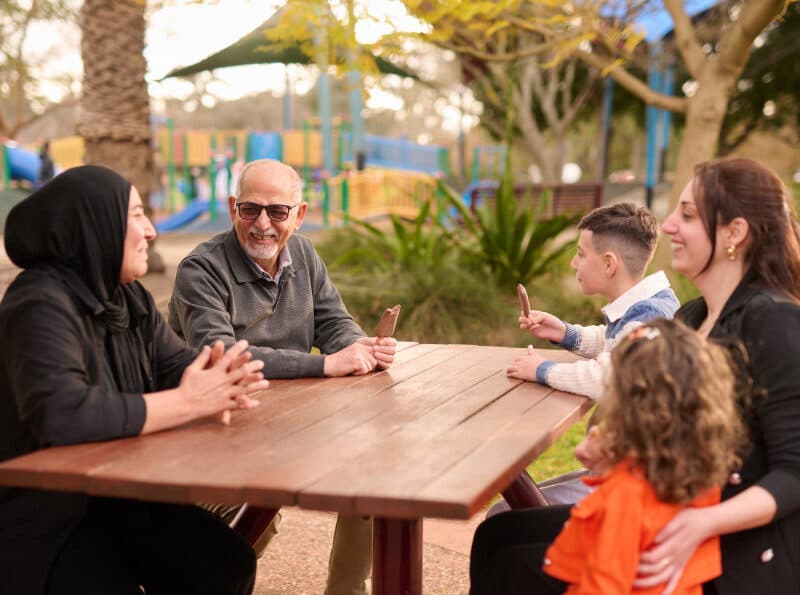What is lung screening?
Lung cancer screening is a free scan that can help find up to 70% of lung cancers earlier, when it’s easier to treat.

What is lung screening?
Lung screening uses a low-dose Computed Tomography (CT) scan of your chest to look for signs of lung cancer before symptoms start.
You may be eligible for a free scan if you:
- are aged 50 to 70, and
- smoke tobacco cigarettes or have quit in the last 10 years, and
- have no symptoms of lung cancer (e.g. coughing up blood, wheezing, shortness of breath), and
- have a smoking history of 30 pack-years or more (your doctor can help you determine this).
What are pack years?
Pack-years is a way for your doctor to calculate how many cigarettes you have smoked in your lifetime. This helps to understand your risk of lung cancer.
Pack-years are calculated by multiplying the number of cigarette packs smoked per day by the number of years you have smoked.
For example, one pack-year is equal to smoking 20 cigarettes (one pack) per day for one year, or 40 cigarettes (two packs) per day for half a year:
- 1 pack a day for 1 year = 1 pack year
- 2 packs a day for 6 months = 1 pack year
Good to know: You won’t need to calculate this yourself. Pack year calculation is an imperfect science, and your doctor or healthcare provider will help you calculate this at your appointment.
How often should I screen?
If you’re eligible for the National Lung Cancer Screening Program, you should have a scan every 2 years.
After your first scan, you’ll be sent your results, which will determine the next steps.
It's important to screen when you are due so that any changes or signs of lung cancer can be found early.
How do I join the program?
If you think you might be eligible for lung screening, you will need to speak to a doctor or healthcare provider to talk about your smoking history, eligibility and receive a program-specific request form.
How much does it cost?
The program is free. Those eligible can join the program and be referred for their first scan to begin their regular lung screening every 2 years.
Your doctor's clinic or health service may charge a fee for the appointment. We recommend calling your clinic before your appointment to understand any costs you may need to pay and ensuring your Medicare details are up to date.

Good to know
You don't have to quit smoking to screen in the program.
Support for rural and remote communities
If you live in a rural or remote area, it can be more difficult to access health services. To help rural or remote communities access lung screening, Heart of Australia will be delivering mobile screening services to some rural and remote communities.
Find out more about rural and remote support
Learn more about the process of lung screening and what to expect at your scan.